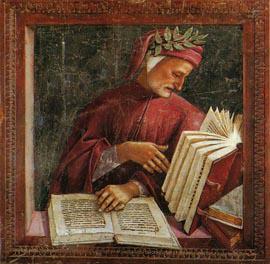This question originally appeared on Quora, the best answer to any question. Ask a question, get a great answer. Learn from experts and access insider knowledge. You can follow Quora on Twitter, Facebook, and Google Plus.
Answer by Kaiser Kuo, dabbler in history:
The Renaissance was a cultural and intellectual movement that peaked during the 15th and 16th centuries, though most historians would agree that it really began in the 14th, with antecedents reaching back into the 12th, and really didn’t end until the 17th. Its chief feature was a heightened interest, to near obsession, with classical (that is, Greco-Roman) learning and culture, much of which had gone into eclipse, at least in Western Europe, during the early Middle Ages.
The Renaissance, which flowered first in Italy and spread to much of Western Europe east of the Pyrenees, saw a continuation of interest in the classical philosophy, mathematics, and natural sciences that late medieval scholars had begun to revive in the 12th century. The Renaissance added to this an interest in the aesthetics of the classical world, including architecture and letters. The revival of interest in all things classical, beginning in the 12th-century focus on philosophy and natural philosophy, owed much to the transmission of Greek and Roman culture through Byzantium (the Eastern Roman Empire) and through Islamic culture, and to the preservation of especially Greek philosophy (to include natural philosophy) in the Middle East and especially Central Asia. The reconquest of Sicily from Arab control in the early 11th century, and contact (both peaceful and bellicose) with the Umayyad caliphate in Spain, which had been captured by Islam in the 8th century and was eventually reconquered in 1492, were crucial to this.

Courtesy of Wikimedia Commons
The Renaissance is associated with great figures like the father of the Latin revival Petrarch, the humanist philosopher Pico della Mirandola, the great artist and inventor Leonardo da Vinci, the poet Dante Alighieri, the artist Michelangelo, the political philosopher Niccolò Machiavelli and many other names doubtless familiar to most educated Europeans.
Humanism and the keen interest in reason common to many of those smitten with Aristotelean philosophy during these centuries brought about profound challenges to the authority of the Roman Catholic Church during this time. The church itself was beset by many internal problems: Long-standing tensions between ecclesiastical and secular authority—supporters of the Holy Roman emperor versus partisans of the pope—broke out into open warfare during the early Renaissance. The Western Schism took place, in which there were actually three rival claimants to the papacy. And practices like the sale of indulgences (which would, for the right amount of money, supposedly reduce the time a sinner spent in purgatory before ascending to heaven), as well as concubinage, simony (sale of religious offices), and many other abuses of power would eventually create violent demand for reform. This would culminate in the Protestant Reformation.
The Enlightenment came much later, but it wouldn’t really have been possible without the Renaissance and the Reformation. Most historians will slip a mainly 17th-century “Age of Reason” into outline chronologies of intellectual history, and this makes a great deal of sense; the great thinkers of the 17th century didn’t have quite the fervor for empiricism and hadn’t quite embraced the political liberalism that would characterize the European Enlightenment. But they had pretty much abandoned the project of Scholasticism—that is, trying to prove God and revealed truth through pure reason, a very late medieval and Renaissance kind of obsession—and they instead “changed the subject,” as the historian Mark Lilla so aptly put it. This was the political philosopher Thomas Hobbes’ great contribution in Leviathan: He really begun the divorce of political thought from theology by simply no longer speaking of God in matters of statecraft.
The Enlightenment began, most historians would probably concur, in mid-17th century, and peaked in the 18th century, when its real center of gravity France, not (as in the Renaissance) Italy. It was only really conscious of itself as an epochal movement from the early to mid-18th century on, though, and the word Enlightenment didn’t really come into vogue until much later in that century. It was very much a reaction to the Catholic counter-revolution and really flowered after the end of the Thirty Years’ War, when the great powers of Europe fought along (roughly) confessional lines—France of course was an exception, and fought mainly on the side of the Protestant powers despite being Catholic.
The Enlightenment was the age of the triumph of science (Newton, Leibniz, Bacon) and of philosophy (Descartes, Locke, Spinoza, Kant, Voltaire, Diderot, Montesquieu). Unlike the Renaissance philosophers, they no longer sought validation in the texts of the Greco-Roman philosophers, but were predicated more solidly on rationalism and empiricism. There were atheists among them, and devout Christians, but if there was a common belief about the divine among Enlightenment philosophers, it was probably deism.
The political philosophy of the Enlightenment is the unambiguous antecedent of modern Western liberalism: secular, pluralistic, rule-of-law-based, with an emphasis on individual rights and freedoms. Note that none of this was really present in the Renaissance, when it was still widely assumed that kings were essentially ordained by God, that monarchy was the natural order of things and that monarchs were not subject to the laws of ordinary men, and that the ruled were not citizens but subjects.
It was the Enlightenment, and thinkers who embodied its ideas, like Voltaire and Benjamin Franklin (I think it was Eugen Weber once described the sage of Philadelphia as the epitome of the Enlightenment thinker), who were the intellectual force behind the American Revolution and the French Revolution, and who really inspired the ideas behind the great political documents of the age like the American Declaration of Independence and the French Declaration of the Rights of Man and the Citizen.
More questions on Quora: